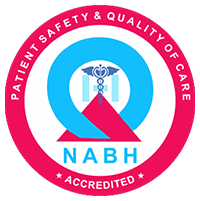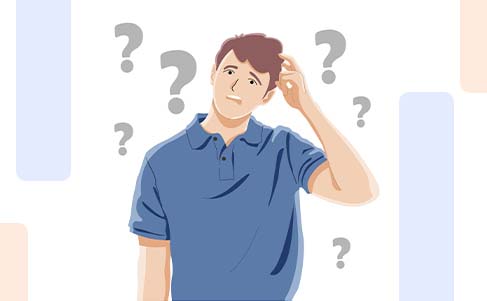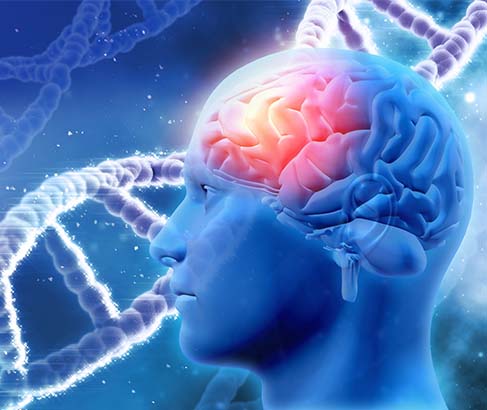Alzheimer’s Disease in Ayurveda
- 84+ Year Experienced
- 150000+ Happy Patients




HAPPY PATIENTS
DISEASES
SINCE
DOCTORS





Dr. Puneet is a well known name in this niche as he has maintained and build the reputation of the company through hard work, use of modern day medical techniques, and providing Ayurvedic treatments for the toughest of the diseases. He completed his bachelor of Ayurvedic Medicine and Surgery in 2010 from India University and holds years of expertise.
He has been working actively and persistently towards giving people good health and peace of mind through an ancient and treasured branch of medicine that offers no side effects to the human body. The therapeutic effects of the Ayurvedic herbs have been working as a marvel for the patients dealing with health problems since years. This form of treatment in the modern world has proved out to be a boon for the people.
Dr. Puneet has surely directed the people’s attention towards the benefits of the Ayurvedic medicines and the miraculous effects that it can provide in the cases of chronic illness. Holding more than 12 years of experience, he has been serving the community with exceptional dedication and persistence.






Alzheimer’s disease is a neurological disorder which leads to shrinking of the brain. This is also termed as atrophy. This health issue causes the brain cells to die. This condition results in the development of dementia as well. The primary signs of the disease can be observed in the form of forgetting certain events or information. With the disease progression, severe memory impairment can take place. If early detection occurs, Alzheimer's disease treatment can be initiated at its best.
The doctors can provide the treatments to slow down the symptoms and provide relief. Alzheimer's medication can be administered that will help to maximise the function of the body. Some of the advanced situations can also lead to issues like malnutrition, dehydration, or infections.
The reasons for the development of Alzheimer’s disease are not clear yet but malfunctioning of a specific protein could be a possible cause behind it. Its inability to function leads to the disruption of the functioning of the brain cells. Neurons get affected, loose connection, and lead to the entire system getting damaged gradually.
The beta-amyloid segments of the plaques protein join together that tend to have toxic effects on the neurons. Cell to cell communication is restricted then.
The tau proteins in the tangles segment get modified in their shape and form structures called neurofibrillary tangles. These increase the toxicity and disrupt the transport channels.
People with Down’s syndrome can also develop the disease as the three copies of chromosome 21 can lead to formation of beta-amyloid proteins. Traumatic brain injuries could be another issue.

There are primarily three types of Alzheimer’s diseases.
This category is the most common type and involves the malfunctioning of a gene called APOE 4. Usually, the signs begin to appear during the mid-60s.
It is a rarely occurring form of the disease and generally the cause remains to be hereditary. The signs appear during the 30s and mid 60s.
This condition makes up less than 1% of the cases and generally occurs when both the generations have had it.

The key symptom remains to be memory loss and the inability to function properly.
The person may repeat statements, forget appointments, misplace possessions, and have trouble while having conversations.
The person faces issues while concentrating, thinking, creating a balance between concepts, etc.
The ability to take decisions and make judgements is ruled out. The capacity to reason is reduced.
Day to day routines like cooking, gardening, etc are affected. They are either not performed or happen repetitively. Tasks like bathing and dressing can also be affected by the individual.
The behaviour of individuals is affected that results in irritability, mood swings, depression, social withdrawal, disruption of sleep cycle, distrust in others, and much more.
The diagnosis includes the individual telling about some symptoms that he or she observes or one of the close family members. Physical and neurological examination is done to analyse muscle tone, strength, coordination, and balance.
Lab tests and neuropsychological testing are also a part of the diagnosis. Brain imaging techniques that include MRI, Amyloid PET imaging, Fluorodeoxyglucose (FDG) PET, and CT scans are also performed.
The treatments include use of certain drugs that help in preserving the chemical messengers in the brain. The Alzheimer's disease treatment involves intake of certain medications that focus on improving cell to cell communication. Alzheimer's medications help in slowing down the progression of the disease.
Apart from this, the creation of a safe and supportive environment is also important. Regular appointments should be organized. Alarms must be installed on doors and windows with sensors. Whiteboard can be kept at home to stay reminded of the tasks.

The side effects of the drugs used for Alzheimer's treatment in hospitals may include development of conditions like nausea, diarrhea, loss of appetite and sleep disruption.
For those who are dealing with certain heart disorders, some serious side effects like cardiac arrhythmia may arise. Other side effects of these drugs can include dizziness and confusion.
As per Ayurveda, the main cause of development of Alzheimer’s disease lies in the change of lifestyle and habits. In the field of Ayurveda, the aggravation of Vata leads to development of the disease. Prana Vata functions inside our brain areas. So, when Vata is aggravated, there is dryness. To deal with such situations, a combination of herbs is suggested to treat the disease.
Alzheimer’s disease cure can be made possible with the help of Ayurvedic approaches.
Alzheimer’s Treatment in Ayurveda
The herbs like Shankhpushpi, Ashwagandha, Brahmi, Jatamansi, and Vacha are known to be effective against Alzheimer's disease. Certain oil massages are also helpful in providing relief to the mind. Shiro Abhyanga and Shirodhara are some of the effective techniques that are administered during the disease. Satvavajaya Chikitsa along with Panchakarma therapy is suggested for Alzheimer's disease.
Ashwagandha is a common herb that is used in Ayurveda and acts as an adaptogen or anti stress agent. Curcumin present in turmeric functions as an antioxidant, anti-inflammatory, and cancer chemopreventive agent which prevents oxidative damage and improves cognitive functions.
Brahmi helps in improving the nervous system disorders like anxiety, insomnia, and epilepsy, but is also used for improving the intellect and memory. Shankhpushpi is administered as a nervine tonic for enhancement of the memory and cognitive abilities.

Ignoring the symptoms will lead to the severity of the disease. The neurons will start getting damaged gradually and will cause the nervous system to collapse.
My husband is suffering from Alzheimer’s. The disorder was diagnosed 10 months ago and times have been hard for us since then. Along with the treatments going on, I was suggested by one of my relatives to opt for Ayurveda. For 2.5 months, I have been in touch with experts from Karma Ayurveda and the conditions are much stable. I am really thankful to the entire team of doctors.
Manish Bhatt
It's been a few years since I got diagnosed for Alzheimer's but I am managing well due to the support and help extended by Karma Ayurveda. Getting in touch with them has been one of the best choices. I don't have to deal with any harsh side effects and have been recovering at a good speed.
Avinash Kumar
I feel really lucky that I’m still able to live independently and manage my life through help and treatments provided by the team of Karma Ayurveda. I have been through therapies and taking herbal medicines which have affected my health positively.
Vipin Kumar
I didn’t expect to go through a disease like Alzheimer’s at the age of 27. It was difficult for me to deal with and understand it at first but gradually, with the assistance and guidance of Dr. Puneet and the team of experts, I have been able to handle it well.
Naveen Rawal

© 2024. All Rights Reserved
DISCLAIMER: The result and experience may vary from patient to patient.